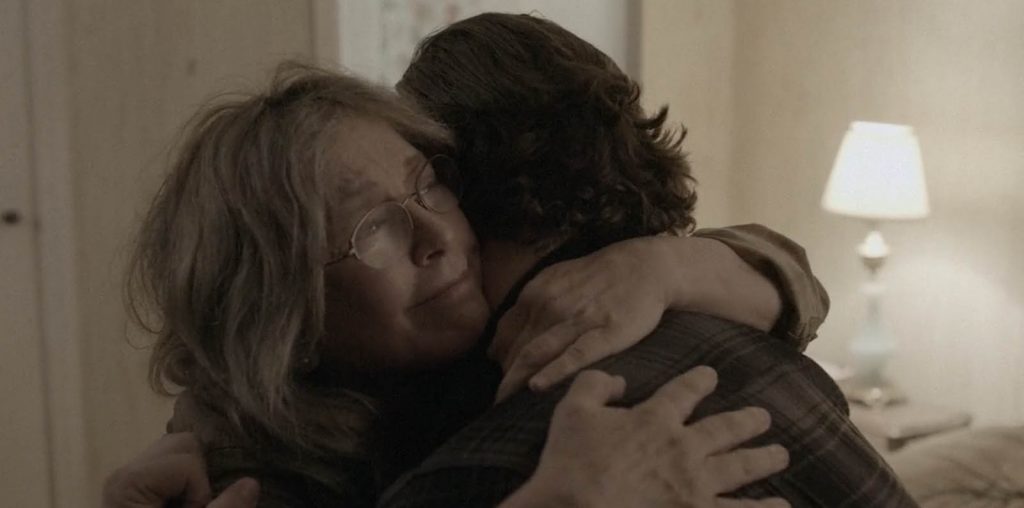
There are few films I’ve approached this year with as much trepidation as this one. The warning signs were many. Between Robin Williams recent slide into maudlin sentimentality and the similarities of the trailer to a certain other ham-fisted, Oscar-winning piece of drivel, I saw trouble. With a cast that included Alan Arkin, Michæl Jeter, and Bob Balaban, the hilarity possibilities were running a little high. There are even a couple of major plot points in common with that Italian film from last year.
Thankfully, it isn’t all quite like that. This is a drama; a remake of the East German film, “Jakob, der Lugner” by Frank Beyer, based on the novel by Jurek Becker. The events occur in a Warsaw ghetto in 1944 during the waning days of World War II. The remaining residents don’t know that, however. All venues for news have been forbidden to them. No radios, no newspapers. The neighborhood itself had been transformed by the occupying Germans into a prison for the slave labor force of Jews. Originally packed several to a room, the area is now mostly haunted as the majority of the residents have been shipped off to the concentration camps. Without any news or sign of hope, the remaining survivors are now as much at risk for suicide as by the camps and the sadistic Germans.
One day, Jakob Heym (Robin Williams), is sent to the commandant’s office for punishment. He overhears a radio broadcast indicating that the Russians have crossed the Polish border and the Germans are losing the war. He attempts to convey a little hope to his fellow prisoners without indicating that he heard it from a radio, a crime punishable by death. Confused, his friends believe he’s hiding a radio, and one thing leads to another…
One thing that sets this film apart from “Life is Beautiful” is its naturalistic tone. This is the bleakest-looking PG-13 film I’ve ever seen. The ghetto is very realistic. For the most part, the violence is off-screen or in the background. Your mind fills in the rest. The characterizations are also infinitely stronger here. In Benigni’s film, nearly all the Jews (except for his character) are portrayed as mute ghosts shuffling grimly off to their fate. They were essentially set dressing. In “Jakob”, you gain some sense of the kind of lives and relationships they maintain and once had before the invasion. Williams’ character is not some magical little imp bouncing through hell hiding reality from his son. He’s just another ordinary guy who, like everyone else, has lost a lot so far and is just trying to survive. He perpetuates the myth of the radio because the sense of hope it endows is the only thing that keeps some of his last friends from killing themselves.
So what’s the problem? While director Peter Kassovitz and co-writer Didier Decoin do a stellar job portraying the horrors of the waning days of the Holocaust, but the hope wasn’t nearly as authentic. It may sound like a great idea, but the whole shebang is just draining to watch. Hey, it’s not easy to make dramatic films about the Holocaust. Real-life heroes are hard to find in the extraordinarily brutal (but unfortunately, not unique) massacre of the Jews. To fictionalize one is absurd and tends to trivialize historical events. Every story seems to end with the German surrender, too abstract to bring down to the personal level. “Schindler’s List” is a rare exception. The Germans were quite efficient at crushing the nations they occupied. Some Polish rebels once ambushed and killed a high-ranking Nazi officer, so Hitler order that an entire town be “erased”, from the population to the foundations of the buildings.
Can any fictional film work inside the framework of the Holocaust? Yes, but probably only certain kinds. Nearly 60 years after it started, we’re still coming to grips with it. Sure, the Nazis make great villains, but actions films trivialize the true horrors and there’s little from which to build a thriller. Smaller, personal stories would seem the way to go. “Jakob the Liar” fails because it ultimately succumbs to the vapid nobility and sentiment that “Life is Beautiful” wallows in.
If you’re only looking for heroes you would probably overlook the kind of heroism was necessary for anyone to survive. Strangely, “Jakob the Liar” does have a very heroic character in the guise of Dr. Kirschbaum (Armin Mueller Stahl). Once a world-renown medical professor, he is now painfully ill but doing what he can to improve the health of his brothers and sisters in hell. In the face of NO hope, he maintains both his dignity and honor. Jakob Heym only acts when he can see the end of the rainbow. In Spielberg’s film, Oskar Schindler made his deal and had to hope he could keep bullshitting the Nazis until they lost, which could take years. Jakob was shooting for around a week, maybe a month. That doesn’t leave much time for transcendence.
